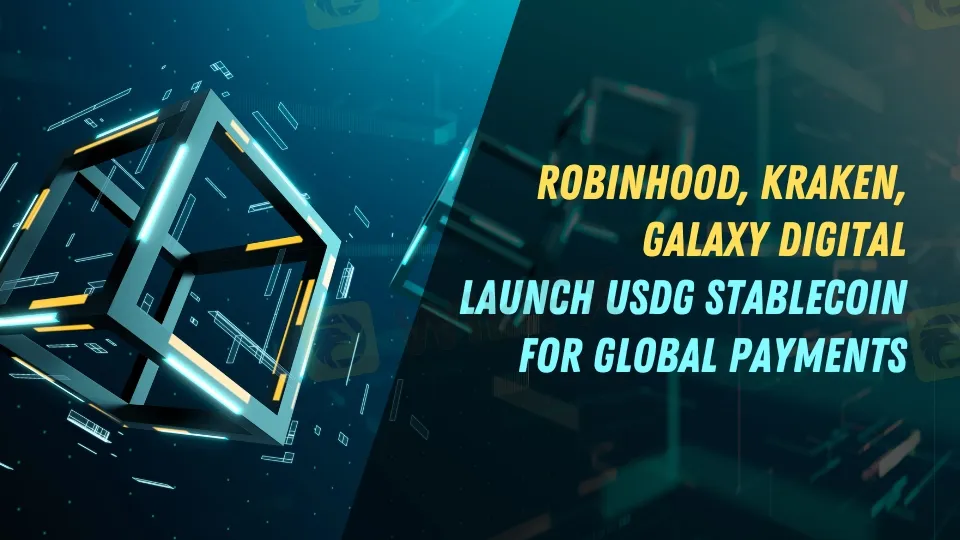97 Scams Crushed: KL Police Seize Over RM5 Million
Police busted 97 online scam cases and seized more than RM5 million, in a series of integrated operations conducted in the capital throughout last year.
简体中文
繁體中文
English
Pусский
日本語
ภาษาไทย
Tiếng Việt
Bahasa Indonesia
Español
हिन्दी
Filippiiniläinen
Français
Deutsch
Português
Türkçe
한국어
العربية
Abstract:Robinhood, Kraken, and Galaxy Digital launch USDG stablecoin with Paxos, aiming to expand global stablecoin use for secure cross-border payments.

Robinhood, Kraken, and Galaxy Digital have joined forces to introduce a new stablecoin, USDG, pegged to the U.S. dollar. This launch marks the beginning of the Global Dollar Network, a consortium aiming to increase stablecoin adoption worldwide while offering economic benefits to its members. The network brings together a powerhouse of fintech firms focused on bridging the gap between digital assets and traditional finance.
Stablecoins like USDG are designed to offer the stability of fiat currencies, addressing the challenge of volatility that often deters mainstream adoption of cryptocurrencies. Unlike assets such as Bitcoin, whose values can fluctuate dramatically, USDG will be anchored to the U.S. dollar, providing users with a predictable and reliable digital currency for transactions. As the popularity of digital assets surges, the introduction of USDG signals a new era for global crypto payments.
The governance of USDG will be managed by a committee within the consortium, including prominent players such as Anchorage Digital, Bullish, and Nuvei. Issued by Paxos from Singapore, USDG faces significant competition from industry giants Tether (USDT) and USD Coin (USDC), which currently hold around 90% of the stablecoin market. Despite this, Paxos CEO Charles Cascarilla emphasized the Global Dollar Network's open-door approach, welcoming new participants and offering incentives to drive global stablecoin adoption.

Stripe, a leading payment processing company, has also committed to integrating USDG within its platform. As the first payment service provider to join the Global Dollar Network, Stripe will incorporate Paxos enterprise-grade stablecoin technology into its “Pay with Crypto” product, enabling businesses worldwide to accept stablecoins as payments that settle in fiat currencies, including the U.S. dollar. This integration aims to streamline the often complex process of converting digital assets into usable funds, especially across international borders.
In addition to its integration with USDG, Stripe is reportedly close to acquiring Bridge, a company focused on cross-border payments using stablecoins, in a potential $1 billion deal. This acquisition aligns with Stripe's strategy to position itself as a leading facilitator of crypto-based payments. The adoption of USDG by Stripe, combined with Bridges expertise, would place the consortium in a stronger position to compete with established players and gain traction in emerging markets.
Stablecoins have become crucial within the digital economy as they bridge the gap between fiat currencies and digital assets. Their ability to facilitate smooth cross-border transactions with lower fees and improved accessibility has made them especially popular in emerging economies. USDGs entry into the market offers a new alternative for businesses and individuals alike, allowing for fast, cost-effective international payments without the risks associated with volatile digital assets.
Final Thoughts
The launch of USDG by Robinhood, Kraken, and Galaxy Digital, backed by Paxos technology, underscores the expanding role of stablecoins in global finance. As digital and traditional financial systems continue to converge, stablecoins like USDG may become essential tools in an increasingly interconnected financial landscape, enabling efficient and accessible transactions worldwide. With Stripe's integration and upcoming acquisitions, the consortium is poised to challenge the established players and reshape the future of digital payments.

Disclaimer:
The views in this article only represent the author's personal views, and do not constitute investment advice on this platform. This platform does not guarantee the accuracy, completeness and timeliness of the information in the article, and will not be liable for any loss caused by the use of or reliance on the information in the article.

Police busted 97 online scam cases and seized more than RM5 million, in a series of integrated operations conducted in the capital throughout last year.

When traders ask, "Is OneRoyal legit or a scam?" The answer isn't simply yes or no. OneRoyal is a trading company that has been running for almost twenty years and has important licenses from top financial authorities. This background puts it far away from typical quick scam operations. However, questions about whether it's trustworthy are reasonable and often come from its complicated business structure, the use of overseas companies, and a pattern of specific, serious complaints from users. This article aims to go beyond marketing claims and provide a fact-based analysis of OneRoyal's trustworthiness.

A global crypto transparency era begins as 48 countries enforce CARF rules; data-sharing to combat tax evasion expands worldwide by 2029.

A 67-year-old former civil servant in Penang has lost more than RM1 million after being lured into a fraudulent online share investment scheme promoted through social media
